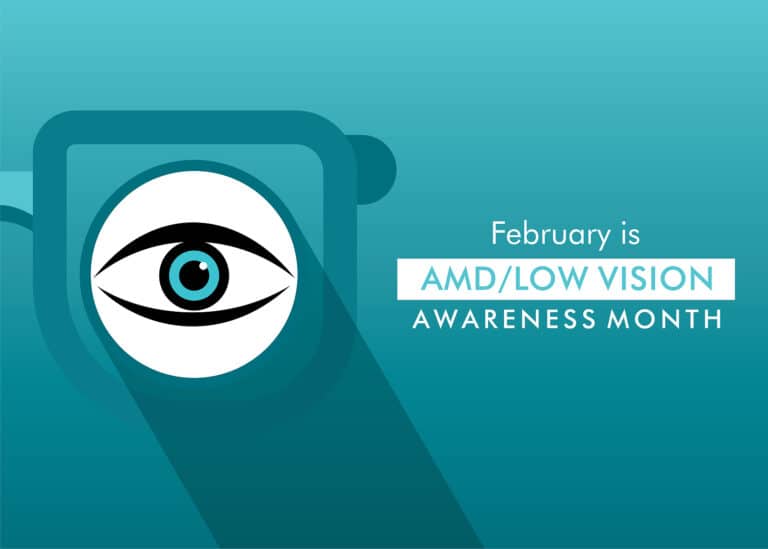Did you know that over 3 million Americans live with low vision or age-related macular degeneration (AMD)? February is AMD/Low Vision Awareness Month, a time to raise awareness about the challenges that come with vision loss and how we can help.
What is Age-Related Macular Degeneration (AMD)?
AMD is a progressive eye condition that affects part of the eye called the macula, which is responsible for clear, sharp vision. As it worsens, it can make everyday activities like reading, driving, and recognizing faces difficult.
Is low vision more than just blurry vision?
Low vision refers to significant vision loss that can’t be fully corrected with glasses, contact lenses, or surgery. It may make it hard to see clearly and perform everyday tasks even with magnifying tools. But it doesn’t mean the end of independence!
How can we help at Adult Alternative Home Care?
At Adult Alternative Home Care, we understand that managing low vision requires more than medical treatment. It’s about adjusting everyday routines and creating a supportive environment.
Here are a few ways we can assist your loved one with low vision:
- Safe Home Environment: We help make your home safer by improving lighting and removing hazards that could lead to falls.
- Personal Assistance: Our Caregivers assist with daily tasks such as meal preparation, medication management, and even reading important documents.
- Emotional Support: Adjusting to vision loss can be tough. Our caregivers provide emotional support to help maintain independence and confidence.
- Assistive Technology: Introducing tech solutions like talking clocks, magnifiers, and voice-activated devices.
Stay informed, on this month take a moment to learn more about AMD and low vision and the symptoms for an early diagnosis. If you or a loved one are dealing with vision loss, we are here to help with personalized care and support.
- The Superfood You Shouldn’t Miss - April 9, 2025
- First Home Care Visit? Here’s The Inside Scoop - April 9, 2025
- Are Seniors Ready for a Disaster? - April 7, 2025


